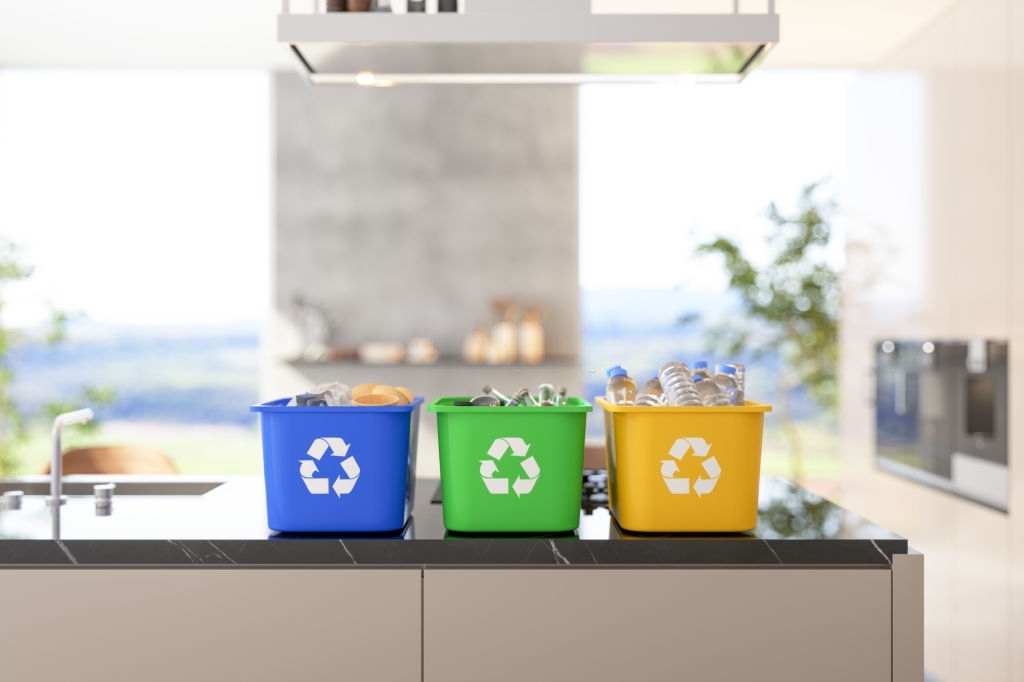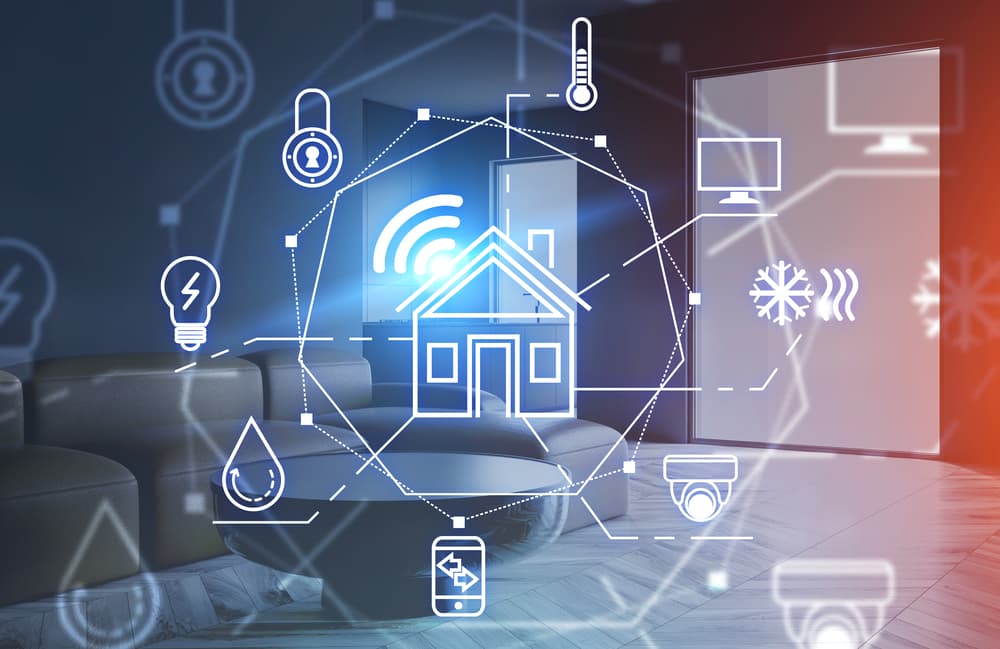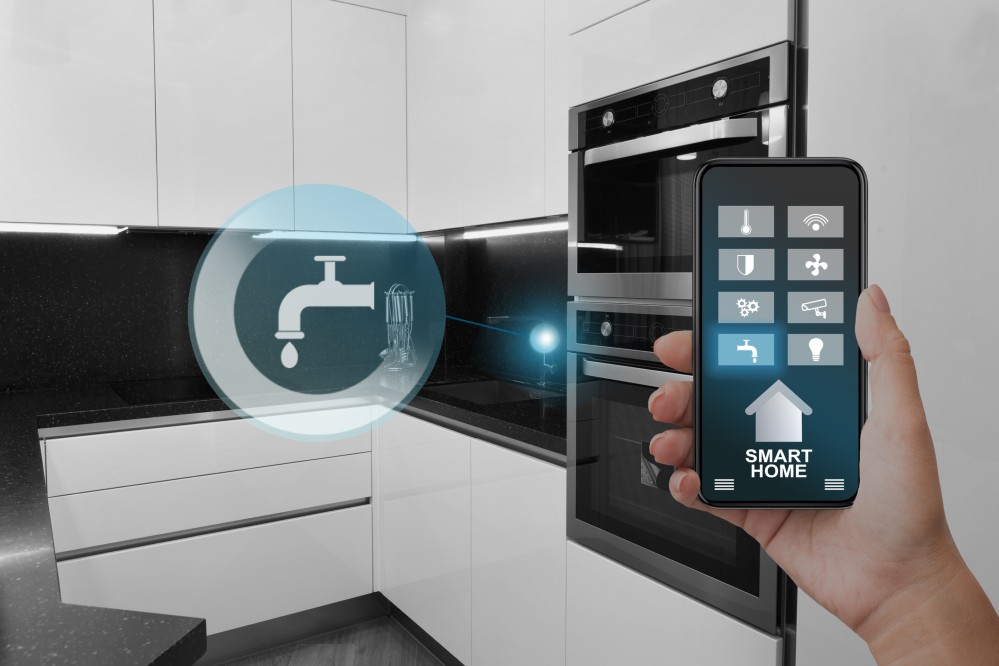Smart waste management systems for modern homes represent innovative technology solutions that revolutionize household recycling and waste disposal through automated sorting, real-time monitoring, and intelligent optimization that reduces environmental impact while streamlining daily waste handling routines. These advanced systems combine sensor technology, artificial intelligence, and connectivity features to identify different waste types, provide recycling guidance, track disposal patterns, and coordinate with municipal waste collection services for enhanced efficiency and environmental responsibility. Modern smart waste management integrates seamlessly with existing home automation ecosystems while promoting sustainable living practices through data-driven insights and automated processes that make environmentally conscious choices convenient and rewarding for homeowners.
This comprehensive analysis examines the technology, implementation approaches, environmental benefits, and practical considerations for integrating intelligent waste management systems into contemporary residential environments.

Automated Waste Sorting Technology
AI-Powered Material Recognition
Advanced waste sorting systems utilize computer vision and machine learning algorithms to automatically identify different types of recyclable materials, organic waste, and general refuse, enabling precise sorting without manual intervention or specialized knowledge from household members.
These recognition systems can distinguish between various plastic types, metal compositions, paper grades, and glass colors through optical sensors and spectroscopic analysis that ensures proper categorization for optimal recycling efficiency and contamination prevention.
DIY smart mirror projects demonstrate how computer vision technology can be adapted for various home applications, and similar principles enable waste management systems to recognize and categorize different materials through advanced image processing and pattern recognition capabilities.
Real-time feedback systems provide immediate guidance to users about proper disposal methods while learning household waste patterns to improve sorting accuracy and provide personalized recommendations for waste reduction and recycling optimization.
Smart Bin Technology and Sensors
Intelligent waste bins incorporate multiple sensor types including weight sensors, fill-level monitors, odor detectors, and material identification systems that provide comprehensive monitoring of waste accumulation and composition throughout collection periods.
These sensors enable automatic bin notifications when containers approach capacity, schedule optimal collection times, and prevent overflow situations that could create hygiene issues or attract pests in residential environments.
Temperature and moisture monitoring helps optimize composting processes for organic waste while preventing anaerobic decomposition that could produce unpleasant odors or methane emissions in household waste storage areas.
Real-Time Waste Monitoring and Analytics
Waste Generation Pattern Analysis
Smart waste management systems track household waste generation patterns over time, identifying trends in consumption, seasonal variations, and opportunities for waste reduction that help families make more sustainable purchasing and disposal decisions.
Data analytics reveal insights about packaging waste, food waste patterns, and recyclable material volumes that enable targeted interventions for reducing overall household environmental impact through behavior modification and purchasing choice optimization.
Comparative benchmarking against similar households or community averages provides context for waste generation levels and motivates continued improvement in sustainable living practices through gamification and social comparison features.
Recycling Compliance and Optimization
Automated compliance monitoring ensures that recycling guidelines are followed correctly, reducing contamination rates that can compromise entire recycling loads and providing immediate feedback to improve household recycling effectiveness.
Integration with local recycling programs provides up-to-date information about accepted materials, collection schedules, and special disposal requirements for hazardous or electronic waste that requires specialized handling procedures.
Educational features provide ongoing guidance about recycling best practices, contamination prevention, and emerging recycling technologies that expand the range of materials that can be processed sustainably.
Connected Waste Collection Services
Municipal Integration and Scheduling
Smart waste systems can integrate with municipal waste management services to optimize collection schedules, reduce unnecessary collection trips, and coordinate special pickups for bulk items or hazardous materials.
Route optimization for waste collection vehicles reduces fuel consumption and emissions while ensuring timely service for households with varying waste generation patterns and collection needs throughout different seasons.
Digital communication between households and waste management services streamlines special requests, service modifications, and billing processes while reducing administrative overhead for both residents and service providers.
Dynamic Collection Optimization
Fill-level sensors in smart bins enable dynamic collection scheduling that responds to actual waste accumulation rather than fixed schedules, reducing collection frequency for low-waste periods while preventing overflow during high-generation periods.
This optimization reduces collection vehicle emissions, labor costs, and wear on collection equipment while ensuring consistent service quality and preventing waste-related hygiene or pest issues in residential neighborhoods.
Predictive analytics can forecast waste generation based on seasonal patterns, local events, and household characteristics to proactively adjust collection schedules and resource allocation for optimal efficiency.
Composting and Organic Waste Management
Automated Composting Systems
Smart composting units monitor temperature, moisture, oxygen levels, and decomposition progress to optimize organic waste processing while minimizing odors, pest attraction, and maintenance requirements for household composting operations.
These systems can accelerate composting through controlled aeration, temperature management, and moisture optimization that produces high-quality compost in shorter timeframes than traditional composting methods.
Integration with smart gardening systems enables automatic compost application scheduling and nutrient monitoring that creates closed-loop organic matter cycles within household sustainable living practices.
Food Waste Reduction Technology
Smart refrigerators and pantry monitoring systems can track food inventory, expiration dates, and consumption patterns to reduce food waste through better meal planning and inventory management.
Recipe suggestion systems based on available ingredients help utilize food items before spoilage while meal planning applications optimize shopping lists to prevent over-purchasing and subsequent waste generation.
Food waste tracking provides detailed insights about waste patterns that enable targeted interventions for reducing household food waste through behavioral changes and improved food management practices.
Hazardous Waste and E-Waste Management
Electronic Waste Processing
Specialized e-waste management systems identify and categorize electronic components, batteries, and devices that require special disposal procedures to prevent environmental contamination and recover valuable materials.
Integration with certified e-waste recycling programs ensures proper disposal of electronic items while providing convenient pickup scheduling and documentation for responsible electronics disposal.
Data wiping and security protocols ensure that personal data is properly destroyed before electronic devices are processed for recycling, protecting household privacy and preventing identity theft risks.
Chemical and Hazardous Material Handling
Smart systems can identify household chemicals, batteries, and other hazardous materials that require specialized disposal procedures to prevent environmental contamination and comply with local regulations.
Scheduling and coordination with hazardous waste collection events or facilities streamlines proper disposal while maintaining detailed records for regulatory compliance and environmental responsibility tracking.
Safety monitoring ensures proper storage and handling of hazardous materials within household environments while awaiting appropriate disposal opportunities through certified programs.
Environmental Impact Tracking and Reporting
Carbon Footprint Calculation
Advanced analytics calculate the environmental impact of household waste generation and disposal choices, providing carbon footprint estimates and recommendations for reducing overall environmental impact through waste reduction and recycling optimization.
Lifecycle assessments consider the environmental impact of packaging choices, product durability, and disposal methods to provide comprehensive guidance for sustainable consumption decisions.
Progress tracking and goal setting motivate continued improvement in household environmental impact while providing concrete metrics for measuring sustainability achievements over time.
Resource Recovery and Circular Economy
Smart waste systems track the recovery value of recyclable materials and demonstrate the economic and environmental benefits of proper sorting and recycling participation within circular economy principles.
Integration with local recycling markets provides real-time information about recycling commodity values and environmental benefits that help motivate continued participation in recycling programs.
Material flow analysis reveals opportunities for waste reduction, reuse, and recycling that support broader circular economy goals while reducing household waste disposal costs and environmental impact.
Smart Home Integration and Automation
Voice Control and Interface Integration
Integration with smart home voice assistants enables hands-free waste sorting guidance, recycling information requests, and collection schedule inquiries that streamline daily waste management activities.
Mobile applications provide comprehensive waste management dashboards, recycling guides, and environmental impact tracking that enable convenient monitoring and optimization of household waste practices.
Automation rules can coordinate waste management activities with other smart home functions, such as adjusting ventilation during composting or scheduling cleaning cycles after waste collection.
IoT Connectivity and Data Sharing
Internet connectivity enables real-time data sharing with waste management services, environmental tracking applications, and community sustainability programs that enhance the effectiveness of waste reduction initiatives.
Integration with smart city platforms provides access to municipal recycling programs, special collection events, and environmental initiatives that expand household waste management options and community engagement opportunities.
Data privacy and security protocols ensure that household waste data is protected while enabling beneficial data sharing for improving waste management services and environmental programs.
Cost-Benefit Analysis and Return on Investment
Initial Investment and Operating Costs
Smart waste management systems typically require initial investments ranging from $200-2000 depending on system complexity, with potential savings through reduced waste disposal fees, composting benefits, and improved recycling efficiency.
Operating costs include connectivity fees, maintenance requirements, and replacement sensors, though many systems are designed for minimal ongoing costs while providing long-term environmental and economic benefits.
Utility rebates and environmental incentive programs may offset initial costs for households participating in smart waste management programs that support municipal sustainability goals.
Long-Term Savings and Benefits
Waste reduction achieved through smart management can reduce disposal fees by 20-40% while composting systems eliminate the need for commercial fertilizers and soil amendments for household gardening activities.
Improved recycling compliance and material recovery can generate additional revenue or cost savings through commodity recovery programs and reduced contamination penalties in some municipal systems.
Property value enhancement through demonstrated environmental responsibility and smart home technology integration provides additional long-term financial benefits beyond direct operational savings.
Implementation Challenges and Solutions
Technology Adoption and User Education
Successful implementation requires user education about system capabilities, proper operation procedures, and the environmental benefits of smart waste management to ensure consistent use and optimal results.
Integration with existing household routines and workflows minimizes disruption while maximizing the benefits of automated waste sorting and monitoring capabilities throughout daily activities.
Technical support and troubleshooting resources help address initial setup challenges and ongoing operational issues that could affect system effectiveness or user satisfaction.
Municipal Coordination and Infrastructure
Coordination with local waste management services may require infrastructure updates, policy changes, or service modifications to fully utilize smart waste management system capabilities and optimization features.
Standardization of communication protocols and data formats enables interoperability between different smart waste systems and municipal waste management infrastructure for maximum efficiency benefits.
Pilot programs and gradual implementation approaches can demonstrate system benefits while allowing municipal services to adapt infrastructure and procedures to support smart waste management integration.
Future Technology Developments
Advanced AI and Machine Learning
Next-generation waste management systems will incorporate more sophisticated AI algorithms that provide better material recognition, predictive analytics, and personalized recommendations for waste reduction and sustainability optimization.
Integration with broader environmental monitoring systems will provide comprehensive household sustainability tracking that encompasses energy, water, and waste management for holistic environmental impact optimization.
Blockchain and Circular Economy Integration
Blockchain technology may enable transparent tracking of recyclable materials through processing chains while providing economic incentives for proper recycling and waste reduction behaviors.
Integration with circular economy platforms could create marketplaces for household waste streams, enabling direct economic benefits from proper waste sorting and material recovery activities.
Conclusion and Implementation Recommendations
Smart waste management systems represent significant opportunities for households to reduce environmental impact while streamlining daily waste handling routines through intelligent automation and optimization technologies.
Successful implementation requires careful consideration of household needs, local waste management infrastructure, and integration with existing smart home systems to maximize benefits while minimizing complexity and cost.
The environmental benefits of reduced waste generation, improved recycling efficiency, and sustainable living practices justify investments in smart waste management technology for environmentally conscious households committed to reducing their ecological footprint.
Future developments in AI technology, municipal integration, and circular economy platforms will continue expanding the capabilities and benefits of smart waste management systems for sustainable residential living.


